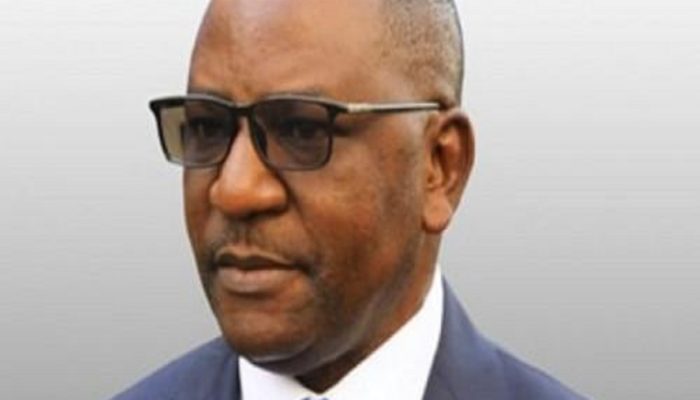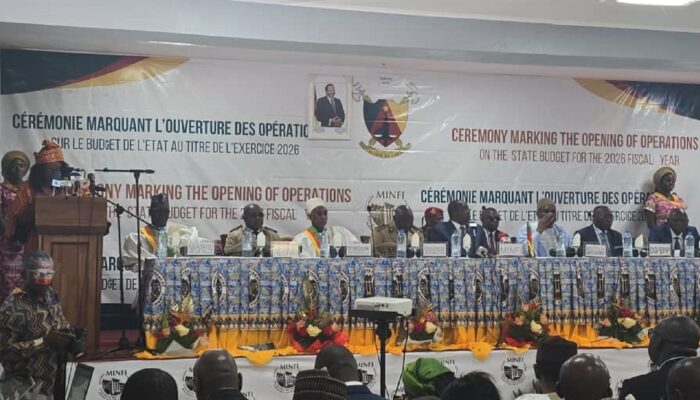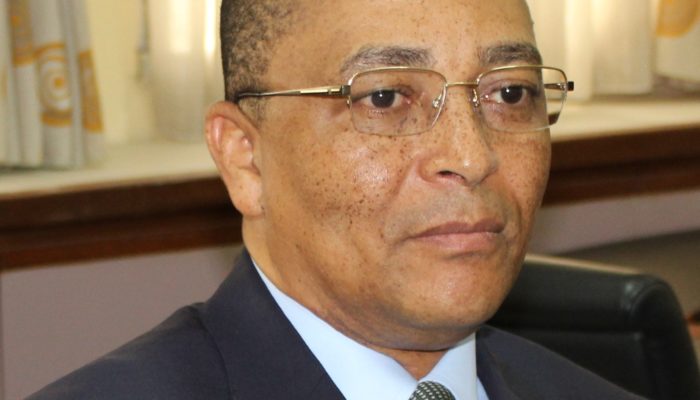Announced 16 months ago, the renationalization of Eneo continues to flounder. A monotonous situation that is gradually leading the electricity sector into total agony, thus reinforcing the place of obscurity that has become king among Cameroonian households.
Considered a sector of sovereignty in most countries in the world. The electricity segment in Cameroon is facing challenges from foreign investors, all of which calls into question the execution of many projects. According to experts, several reasons have been made to date to nationalize Eneo again. Through this operation, the State of Cameroon could increase its assets and strengthen its energy independence. Indeed, and according to estimates, the payment of bills and other related services generate more than 30 billion CFA francs per month for Eneo. A substantial amount that could go directly into the public treasury, if and only if the Cameroonian State had a total monopoly on Eneo’s assets.

At a time when industrial players are being advised to reduce their consumption in order to ration electricity. It is becoming imperative to take over Eneo, because Cameroon’s economic interest is at stake. As an illustration, the Cameroonian Aluminum Company (Alucam), the only aluminum producer in the Cemac zone, ended 2023 in the red. According to the financial statements consulted, the public company recorded a loss of 23.6 billion FCFA during the period under review, a staggering increase of 237.14% compared to the previous financial year, when losses amounted to 7 billion.
In a context of high social tension marked by the resurgence of complaints and the increase in power cuts, nationalizing the country’s electricity company will contribute to strengthening public power. Thanks to this mechanism, real development projects in the sector can be implemented, while accelerating the rise of renewable energies.
From Sonel to Aes Sonel: the great disillusionment
The general context of the privatization of Sonel is part of a policy initiated under pressure from Cameroon’s multilateral donors in 1995. This was in the aftermath of the great recession that hit the global economy and especially the fragile African systems. The Cameroonian national electricity company was bought on July 18, 2001 by the American group AES Sirocco for a twenty-year operating period.
Sonel, which was badly damaged, was facing management problems, customer complaints about the quality of service, problems with the maintenance of installations, etc. To pay for this buyout, the American company will pay 53 billion FCFA. But only 23 billion, thanks to the sale of 1,680,000 shares, are supposed to fill the state coffers. The remaining 30 billion should be reserved, according to the concession agreement, for a future doubling of the share capital.
In its roadmap, the structure now called Aes Sonel “commits to installing 68,000 new connections each year and investing 1,000 billion FCFA over five years. This investment should make it possible to maintain existing equipment and build new hydroelectric dams ,” confided at the time, Mark Miller, the very first general manager. The arrival of the American Aes in Cameroon is seen as the miracle recipe for reducing, or even stopping, power cuts and reviving a lagging public company.
During 2010, the relationship between Yaoundé and the American company began to crumble. Although several general managers had passed through there until the appointment of the Cameroonian Jean David Bilé. On the ground, the problems of yesteryear resurfaced. In addition to the bet of having captured a production of 1238 MW at the end of 2012, Aes marked its beginnings with more load shedding than in the past and increases in the price of the kilowatt hour, which amplified the discontent within the population. From June 1, 2012, customers will see an increase of 7% on their bill for low voltage customers and 8.2% for non-domestic consumers. To this end, those using low voltage electrical energy at home and whose monthly consumption is between 111 Kwh and 400 Kwh will now pay 79 FCfa to pay for the kilowatt of electricity instead of 70 FCfa as indicated in the 2008 tariff grid. Those who consume between 401 Kwh and 800 Kwh each month will pay 94 FCfa for each kilowatt instead of 80 FCfa, while consumers using more than 801 Kwh will pay 99 FCfa instead of 85 FCfa. On the other hand, the rates for consumption less than or equal to 110 kwh remain unchanged at 50 FCfa.
At the height of the remaining tensions, the American announced its intention to leave at the end of 2013, in accordance with the provisions of the concession contract signed in 2001, which stipulated that ” the concessionaire may freely sell his shares whenever he wishes”. Upon leaving Cameroon, and despite recovery problems, the group claims to have invested 630 billion CFA francs in 12 years for more than 400,000 new subscribers.
From Aes Sonel to Eneo Cameroon: total gangrene
On May 23, 2014, the American company formalized the takeover of all of its group’s assets in Cameroon (AES Sonel, Kpdc and Dpdc) by the British investment fund Actis LLP. Bought for a total amount of 220 million dollars (approximately 135 billion FCfa), Eneo Cameroon unveils its roadmap around five major axes, including continuity of service, investment, operational performance, concentration of efforts towards management and employees and an optimal level of governance, indicated David Grylls, representative of the investment fund. In its global approach, Eneo Cameroon aims to raise the sector, its desire is to use the best available technologies to optimize and increase the energy efficiency of its production fleet. With the investment plan, Eneo Cameroon indicates that it will focus its efforts on quality of service, in particular on challenges such as wooden supports, overloading of cables and transformers, etc.
The electricity company Eneo, a subsidiary of the British company Actis, has provided the entire Cameroonian electricity system with a contribution of 130 MW. Indeed, Eneo Cameroon’s investment effort in production has enabled the country to provide new capacities, namely 50 MW of gas in Logbaba Douala, the rehabilitation of the facilities which has promoted availability gains of 15 MW at the Edea Power Plant, and +33 MW at the Limbé Power Plant, increased to 84 MW, etc.
Since 2014, the company has connected 315,000 new families and industries. At the end of June 2017, unsupplied energy was down 31% compared to the same period in 2016. Despite an estimated workforce of 3,700 employees and a portfolio of more than 1,150,000 customers, power cuts persist and complaints are increasing.
Buyout of Actis shares or the ignored words of Paul Biya
Established since September 2023, the interministerial committee continues to maintain uncertainty over the negotiations for the purchase of 51% of the shares of the British Actis. On November 22, 2023, Louis Paul Motaze, chairman of the committee, stated, “We are truly entering into negotiations because a lot of work has already been done, and we already have enough elements that can form the basis of negotiations with Actis. This assumes that there are positions that may diverge. The negotiation is precisely intended to reduce the amount of misunderstanding…”.
Seen from this angle, the process of renationalizing Eneo is still encountering friction at the top of the State. Actis, the majority shareholder, is demanding between 100 billion and 125 billion CFA francs to sell its shares, but differences remain on the amount to be offered. According to sources, some officials at the Presidency of the Republic believe that Cameroon should not pay the 80 billion CFA francs proposed by the Interministerial Committee led by the Minister of Finance Louis Paul Motaze, following the assessment carried out by the French subsidiary of the audit firm KPMG on the real value of Eneo’s shares.
This imbroglio persists and therefore signs under the sky of Yaoundé, in a context where several local actors wish to enter the race. Sources close to the case reveal the very keen interest of the Caisse de dépôts et consignations du Cameroun. Faced with the claim for a payment of more than 44 billion FCFA to Eneo, as deposits paid by users on electricity consumption. The CDEC proposes to sit down to find intelligent solutions that range from a staggered repayment to entry into the capital. Closer, the Caisse Nationale de Prévoyance Sociale aims to put itself in pole position.
In an article published on March 24, 2023, Africa Business revealed that the National Social Security Fund (CNPS) of Cameroon, a public institution headed by Alain Noël Olivier Mekulu Mvondo Akame, had sent an expression of interest on November 13, 2022 to the British fund Actis for the acquisition of its shares (51%) in Energy of Cameroon (Eneo). With CNPS leading the way for the takeover, it was also learned that the National Hydrocarbons Company (SNH), another state-owned company, was at the time the other member of the group applying to take over Eneo.
As for the financial aspect, Financia Capital, created by Serge Yanic Nana, also said it was positioned to act as an investment bank responsible for structuring the deal on behalf of Actis’ investment fund. Especially since this firm had already set up, in December 2021, the operation that led to raising 118 billion FCFA on the money market in order to partially settle the energy company’s debt and pay its suppliers.





